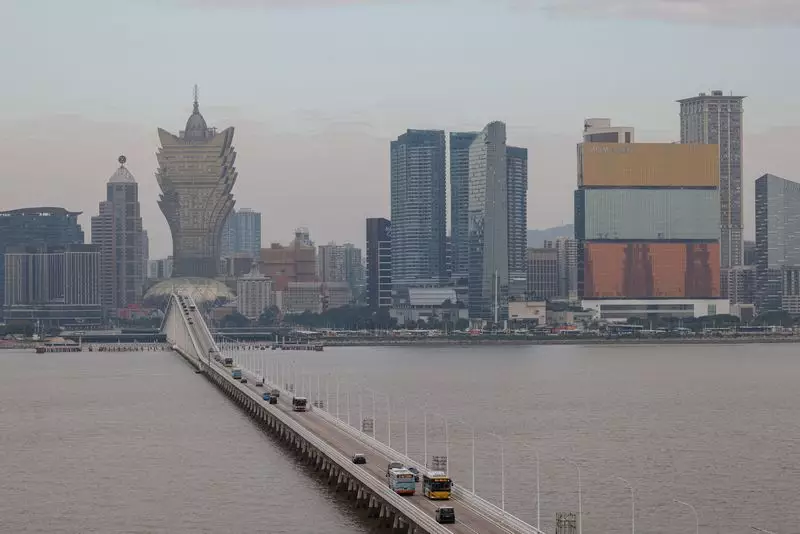In 2024, Macau celebrated a significant increase in its casino revenues, witnessing a remarkable rise of nearly 24% compared to the previous year. This surge brought the total revenue to an impressive 226.8 billion patacas—or approximately $28.35 billion. While this growth might appear encouraging, it starkly contrasts with the pre-pandemic revenue figures of 292.5 billion patacas recorded in 2019, revealing a pressing issue for the territory’s economy. Despite exceeding government expectations of 216 billion patacas, these numbers cast a shadow on the long-term sustainability of Macau’s gambling-centric economic model.
Even amidst this revenue growth, December posed a significant challenge for the region—marking a 2% decline in year-on-year revenue, the only drop throughout 2024. This downturn was notably linked to a high-profile visit from President Xi Jinping, coinciding with a heightened security protocol during his stay in the region, which marked the 25th anniversary of Macau’s return to Chinese sovereignty. Such political events often directly impact the local economy, highlighting the vulnerabilities faced by a destination heavily reliant on tourism and gambling.
During his visit, President Xi underscored the necessity for Macau to diversify its economic foundations. This call to action stems from the recognition that the territory’s dependence on gaming revenue poses inherent risks, particularly given the volatility of tourism and gambling trends. Xi urged Macau to embrace new industries and tighter economic integration with the Greater Bay Area— a strategic proposal intended to foster connections with other major urban centers, including Hong Kong and Guangzhou.
Moreover, the emphasis on strengthening ties with Portuguese-speaking nations and participating in the Belt and Road Initiative illustrates a broader vision for Macau. It suggests a pathway towards weaving itself into the global economic fabric, ensuring it is not solely at the mercy of fluctuating gambling revenues.
Macau’s economy has undeniably been affected by China’s comprehensive anti-corruption campaign, which targeted the VIP gambling sector. This clientele, once a lucrative source of revenue, has diminished substantially in the wake of stricter regulations and limited mobility during the pandemic years. Consequently, the future of Macau’s economy hinges not only on its recovery from the pandemic but also on its ability to establish a more diverse range of revenue streams that can withstand political and economic fluctuations.
While Macau has experienced noteworthy gains in its casino revenues in 2024, these figures are not sufficient to restore the economy to its pre-pandemic glory. The call for economic diversification is pressing and paramount, as reliance on the gaming sector continues to pose significant risks. The effective execution of President Xi Jinping’s vision could usher in a new era for Macau, allowing it to break free from its gambling-centric economy and redefine its place in the global landscape. Only through strategic investments in diverse industries can Macau secure a future that promises stability and resilience amidst the challenges of the global economy.

